By Ugonna Agu
In this Report, Ugonna Agu delved into the silent and vulnerable world of the widows in Imo to amplify their hushed voices of agony, maltreatment and rejection.
“My husband’s brother came and saw my husband’s corpse, and accused me of giving his brother poison. He took my husband’s body to the mortuary and did not give my son the tally, rather he seized it up till now. I don’t know if they have buried him or if my husband is still in the mortuary. Give me the tally, let me go and bury my husband, they said No.”
This was the narration of 45-year-old Mrs. Elizabeth Ogu from Obinze in Owerri West Local Government Area of Imo State, whose husband died in July 2021 after over 14 years of ill health, leaving her a son to cater for.
Her husband’s brother who took the body to the morgue has refused her access to his corpse and also refused to tell her when he would be buried as at the time of this report.
She recounted in tears how she was instructed by her brother in-law not to go anywhere including the village, till her husband was buried. She kept staying indoors as directed, waiting and expecting for burial arrangements to start, all to no avail.
“He told me that I should not go to their village, I should not step out to anywhere, even to church, that I should stay indoors till when my husband is buried. He instructed me that I should not tell anybody that my husband is late, that I should tell them that my husband is still alive.”
Mrs. Ogu said she had made frantic efforts to get access to her husband’s corpse, including reporting to the National Human Rights Commission, calling on her husband’s family and maternal home and also making a statement at the police station, but that each time, her in-laws would not honour the invitation.
She said she spent all her money on her husband’s drugs and medication during his sick days, and had nothing left to sue her in-laws to court or the least get the police involved in the case and make them release her husband’s corpse to her.
Mrs. Ogu is one of the many widows in Nigeria, especially the eastern part of the country who have been subjected to inhuman practices on account of their husband’s demise. Some of these widows are accused of having a hand in their husband’s death, made to swear oath of innocence, denied access to their husband’s corpses, refused to get them involved in their husband’s funerals and neglected.
41 year old Mrs. Ndudi Anoka (not real name) from Mbieri in Mbaitoli LGA, whose husband died in 2019 after 13 years of blissful marriage, leaving behind 4 children to her care, had a similar case.
Mrs. Anoka narrated that her husband died while they were living in a nearby community so they could renovate their family house. She returned to her husband’s compound after his death only to face all sorts of emotional and psychological humiliation.
“I was told to come and show them one of our lands that they have to sell for the burial; as they said that there’s no money. I showed them and we put the land up for sale. I was later summoned again that they want to do prayer of liberation; that my children and I will follow them to the shrine. I told them I was not going to go with them but they said it was by force.”
Mrs. Anoka recalled how she left the village with her children for an important errand in Owerri town, only to be called by her sister in-law, mandating her never to return to the compound, on the accusation of allegedly running away with her children to avoid being part of the family liberation prayers.
“The woman said I should not come back to their compound again, that I ran away with my children, because of the prayer. I took my children back, we stayed there till one morning my brother in-law called and said he was burying my husband on Friday. That Friday we came for the burial, my husband was buried like a fowl,” Mrs. Anoka recalled in tears.
After the burial, the umuada (daughters of the compound but married elsewhere) summoned her, accusing her of abandoning her husband’s corpse at Owerri, and not taking part in the funeral arrangements. Labeling her with all manner of names and threatening to ostracise her.
She said she went back to Owerri, after the mourning period to look for a job to fend for her children. When life became unbearably hard, she decided to return to her husband’s compound after 3 years, only to be welcomed with so much hatred and ill treatment.
She narrated that her brother in-law locked her and her children outside for three days. It took the intervention of the Human Rights Commission and the Mbaitoli LGA Administrator to get her reinstated back into her house, and get the brother in-law promise to take care of their well being.
Mrs Anoka recounted how her brother in-law has been selling off the family lands, leaving her and her children hungry in an unhealthy environment.
“None of them is going to school, to eat is a problem, these children keep going from one bush to another, picking palm kernels, or to people’s houses, looking for something to feed on, or me calling people and begging them.”
She narrated in tears, “I need to be going for treatment for my eyes.”
Mrs. Anoka said she was into petty trading after her husband’s death, but couldn’t continue due to her failing sight.

Calls for an end to hostile and harmful practices against widows have been the subject of advocacy for women’s rights. Sadly, most of these obnoxious practices are meted out on the widows by fellow women called “Umuada” who are daughters or sisters of the deceased immediate and extended families married to other families.
Section 17(2) of the Imo State Violence Against Persons Prohibition Law, listed out some harmful widowhood practices to include, Compulsory shaving of hairs, Swearing at any shrine or before anybody, Forcefully taking over of a widow’s children without her consent, Deprivation or dispossession of a widow’s husband’s property, Forceful eviction from a widow’s husband’s property, Remaining in seclusion after the death of her husband. Anyone, under the guise of religion or tradition, who subjects a widow to any of these harmful practices, commits an offence and is liable on conviction to a term of imprisonment not exceeding three years or a fine not below 500,000 naira or to both terms of fine and imprisonment.
The dehumanising and discriminating treatment accorded to widows is one of the major unfortunate circumstances that women have had to face in Imo State, upon the death of their husbands. Most often, a widow is seen as part of the properties left behind by her deceased husband and will not be allowed to inherit her deceased husband’s property.
35 year old Judith Egejuru from Nekede in Owerri West LGA of Imo State, whose husband passed in 2020 said she was sent out of the house she lived with her husband after his demise, under the guise that the house belongs to a strange woman who claimed to be her husband’s first wife.
“My husband told me he did not get married to this lady, that they were just doing friendship, that when he tried to marry her, her father said no, that my husband don’t have money to marry his child.”
Sadly, her brother in-law who was never in good terms with her husband while he was alive, seized the opportunity to frustrate the widow.
“My husband and his younger brother were not in good terms, the man said he will frustrate me until I leave the place, take my children and run away,” she recounted.
“This is not where I lived with my husband. When my husband died, they said I should pack out, I said let me stay in one room with my children, he said no. They beat me because of packing out that day. So I now took my children and packed out. After the burial, they locked the place, that I will not enter there again.”
Mrs. Egejuru who was into petty trading before her husband’s death said her in-laws shared her husband’s property and locked up her shop leaving her with no source of income to cater for her 3 children.
“Even the shop that I was selling food stuff, they said I should not enter there, now, I’m not doing anything.”
She regretted that her children are being sponsored in school by her family members, while her husband’s family members do not ask of their well being.
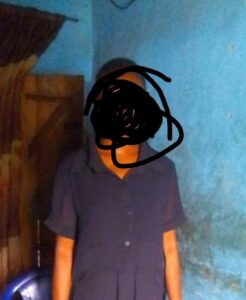
Article 21 of the Optional Protocol to the African Charter on Human and Peoples Rights on the Rights of Women in Africa, 2003, provides that a widow shall have the right to an equitable share in the inheritance of the property of her husband, and also have the right to continue to live in the matrimonial house. In case of remarriage, she shall retain this right if the house belongs to her or she has inherited it.
This means that a widow has a right to continue to live in their matrimonial home upon the demise of her husband and should not be deprived of her inheritance rights.
Also Section 4 of the Imo State Widowhood (protection) Law No 12 of 2003 states that subject to the administration of estate law, a widow shall not be disposed of any property acquired by her deceased husband in his life time, whether or not she has a male child unless she remarries.
While section 5 of the aforementioned law provides that any person who willfully compels a widow to engage in any act or omission against her will in violation of the provision of the law, is guilty of an offence and shall be liable to a fine of 10,000 naira or imprisonment for 6 months or to both fine and imprisonment.
The Coordinator, National Human Rights Commission in Imo State, Mrs Ukachi Ukah, bemoaned the ill treatment widows are made to face from the immediate members of the husband’s family, and the society at large.
Mrs. Ukah disclosed that of all the cases reported to the commission, cases bordering on forceful eviction from husband’s houses, abandonment and excommunication by the in-laws are the most received.
She narrated the story of a young widow who brought a complaint that her sister in-law conducted her husband’s burial without getting her involved and also forcefully took her 8 year old child from her.
“We have complaints where widows cry to the commission that they are forcefully evicted from their husbands’ houses; we have complaints were they are stigmatised and are alleged as one who killed their husbands ,” she said.
According to the National Human Rights Commission (NHRC) Imo State Coordinator, the commission is doing its bit in the sensitisation through the media and town hall meetings and litigations where necessary, to fight for the protection of widows from such dehumanising practices.
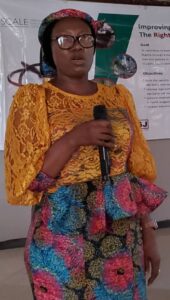
Widowhood practices in Imo State and Igboland in general date as far back as culture itself. These traditional practices were handed over from one generation to the next ignorant generation.
In those days, a woman is expected to wail and cry loudly at her husband’s death, to show a deep sense of grief, shave off all the hairs on her head, made to sit at a place from morning till evening of the burial day, and thereafter subjected to six to twelve months of mourning – wearing either black or white clothe.
63 years old madam Tina Uneze from Imerienwe in Ngor Okpalla Local Government Area of Imo State said she was made to go through most of these dehumanising practices when her husband passed in 1993.
“My husband married me when I was in school, they didn’t let me see my husband’s corpse.”
Mrs. Uneze said the husband’s relations sold his properties leaving her with little which she struggled to raise her children with.
She decried that even 30 years after her husband’s demise, his family members have still not relented in denying her and her children of their rights.
“Since my husband died, they don’t give us farmland, my children are married and have children, but nobody has given us just a plot of farmland.”
However, most of these obnoxious widowhood practices are gradually phasing out with time and civilization. According to the Director Ministry of Women Affairs and Vulnerable Groups in Imo State, Dr Blessing Azubuike, just a little percent of these practices are still being reported.
Dr. Azubuike disclosed that 70% of the cases reported to the ministry, border mostly on denial of husbands’ property and family inheritance.
“To a large extent, most of those practices are beginning to phase out. People have realised that they are not necessary. Shaving of hair and wearing white are now things widows do on their own volition, for respect,” she stated.

Mrs. Dorothy, who hails from Akabo in Ikeduru LGA, said she was not subjected to practice of shaving off her hair or wearing of mourning clothe, but chose to do all that out of respect for her husband.
“I cut my hair because I wanted to cut it, not because of them,” she said.
She lamented that she was asked to leave the house her husband built and that her husband will not be buried within the compound because even as the first son, he was not the rightful owner of the plot of land where he built his house.
Mrs. Dorothy said she had to report the case to Human Rights Commission, which wadded into the matter and made them to bury her husband.
She said her husband’s relatives asked her to sell her commercial bus to raise money for the burial, but she refused, insisting it was the only thing that fetches money for her since she was out of job and business. And that caused a fallout for them.
“His people ganged up, that I have to bring out the keke (tricycle) so that they will sell it, I said no, that caused very big havoc between me and them.”
“They have buried my husband; all of them have gone back to their various places without asking how I am fairing with the five kids their brother left behind,” she cried.
Despite the existence of different legal frame works in Imo State and Nigeria to fight against harmful widowhood practices, long standing traditional practices, social norms and religious beliefs continue to fuel the dehumanising practices meted out on widows.
In May 2015, the Federal Government signed into law the Violence Against Persons Prohibition (VAPP) Act to protect people against various forms of violence, including harmful widowhood practices. A new section 15 of the Principal Act was introduced, which criminalises the subjection of a widow to dehumanising practices and stipulates more stringent penalties for perpetrators. These new penalties range from an imprisonment term of two years or a fine of N100,000 or both, to an imprisonment term of seven years without any option of fine.
The bill also provides that a widow shall have the right to continue to live in her matrimonial home and where she re-marries, retains the home if it belongs to or is inherited by her. She also has the right to inherit from a property jointly owned by her deceased husband and in-laws.
A traditional ruler of Umueze Chokoneze in Ezinihitte Local Government Area of the state, His Royal Highness, Eze Mike Nwamara, frowned at the obnoxious treatment meted out on widows in the past.
Eze Nwamara disclosed that his community had made clear its stand against such inhumane practices and that such practices do not exist in his community.
“In my community, there is a billboard which clearly states the rights of widows. Widows rights are strictly adhered to.”
Reiterating her husband’s stand, the wife of the traditional ruler of Umueze Chokoneze, Ugoeze Chigbo Nwamara, who also owns a foundation that cares for vulnerable widows, decried some of the issues her foundation had taken care of in the past.
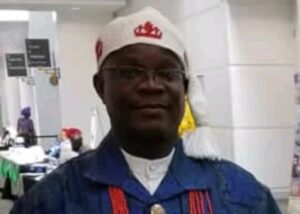
Ugoeze Nwamara stated that due to illiteracy, male dominated society, poor socio economic status of women, many widows have been subjected to all sorts of painful and harmful practices. She said her foundation encourages and counsels widows in her community and beyond to report any form of stigmatisation or ill treatment by anyone, but sadly, most widows would rather endure the suffering than bring their issues to the public.
“Because of illiteracy and timidity, many of them do not like opening up, they would rather die in silence.”
Ugoeze Nwamara narrated the case of a widow who in her vulnerability and joblessness and in the bid to get succor and financial assistance to fend for her children fell prey to different men, who sadly never kept to their promises, but took advantage of her.
Hushed
Although data do not exist to calculate the inhumane treatment most widows are subjected to in Imo State, from years back, everyday, widows go through emotional, sexual, psychological and physical abuses. Most of which are not voiced out.
Although the Nigerian constitution and other international instruments have prohibited discrimination of any form, there are still impediments that violate the inheritance rights of widows. Despite the provisions on equal rights of men and women contained in the Charter of The United Nations, the Universal Declaration of Human Rights, and the International Covenants on Human Rights, most widows are silenced due to the patriarchal traditional belief that a woman should not inherit her late father’s property
A female child is raised to believe that she has no right to property even in her father’s house. And up until recently, customary law forbids women from owning their own immovable property.
It is important to state that a woman has rights by virtue of being human as expressed in the Universal Declaration of Human Rights, (UDHR) Art 120 which declares equality of all citizens irrespective of sex, race, color, religion or status.
Widows are also silenced even while they go through inhumane treatment from their in-laws for the fear of being stigmatised as one who sued the in-laws to court.
A director in the Imo State Ministry of Women Affairs Dr. Blessing Azubuike, said that most widows they encounter withhold them from litigation. She said the ministry resolved to amicable mediation between the parties, and a follow up to ensure the widow gets better treatment.
“We have not had prosecutions based on the sensitivity and peculiarity of the issue. It is always family members, most times the widows, who are not ready to go ahead with prosecution. We may want to prosecute and the widow will decline. This is my in-law, if I take him to the police, what will become of the relationship. Most of them are not willing to go all length,” Dr. Azubuike regretted.
The type of marriage a woman goes into with her husband is also another reason why a widow keeps silent in the face of obnoxious treatment at the demise of her husband. Marriage contracted under customary law, in most cases does not allow widows to inherit their husband’s property.
The executive coordinator, Imo State Committee on Ending Violence against Women and Girls, ISCEVAWAG, Mrs Majorie Ezihe, pointed out that in order to reduce disinheritance of husband’s property, knowledge should be shared to young girls even before marriage, on what constitutes a real marriage in the eyes of the law.
“Often times, persons go to church to wed, they think they are legally married, at the point of widowhood, they find out they just have an ordinary paper which does not transmit anything to them.”
Mrs. Ezihe said that most laws of the land and church certificates are not legal or legit and disinherit women. Where a marriage is contracted under the Act, the woman is protected to some extent, but where the marriage is contracted under customary law, it in most cases does not allow widows to inherit their husband’s property.
According to her, ignorance of the law is also another reason why women are silenced in the face of obnoxious widowhood practices. Although various laws exist that fight against violence against women and widows, but most women do not know about them and where to get access to justice.
She called for continuous sensitisation of women, especially indigent women on what constitutes their rights and where they can seek redress when those rights are infringed upon.
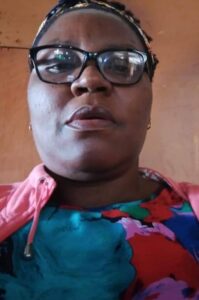
The coordinator ISCEVAWAG pointed out that the major challenge in implementing the laws is the ignorance of the law enforcement to the existence of the laws. She said the civil society is doing its best to bring the knowledge of these laws to bear for it to be used for attestation on the law court.
The 2015 World Widows Report by the Loomba Foundation says there are 258 million widows around the world, of which 3.5 million are Nigerians, most of whom live in extreme poverty where basic needs are unmet.
Most widows encountered by this reporter were out of means of livelihood and depended on family and friends for survival due to the passing of their husbands who were the bread winners. Not every widow has the financial means to afford the high cost of litigation towards enforcing her right to inherit. This is also a major reason for a widow’s silence in the face of maltreatment. The death of a spouse makes a widow vulnerable, exposes her to all sorts of crisis, confused, sometimes depressed and in worse, suicidal. Being confined in a place during the pre- and post-burial and not doing anything, can be very traumatic. Her mind wonders, her life passes by in pictures and phases. Losing a loved one, probably a source of income makes her uncertain of what the future holds for her and her children.
The children are not left out of the all misery. Harmful widowhood practices can move a child from privileged to indigent, leaving them vulnerable and uncertain of their future.
Mrs Majorie regretted that “harmful widowhood practices can drive a female child into prostitution; it can create runaway homes, and can give rise to child-led families and can also send the male into crime.”
Help from institutions
The laws geared towards protecting the widow from stigmatisation, cannot be said to be inadequate, but can however be said to be largely ineffective because the letters of the law and the pronouncements of the Supreme Court of Nigeria are not enough to compel attitudinal change and put a stop to the disinheritance of widows.
Constant sensitisation of women and girls on the provisions of the law will help them know what their rights are and when they’re being infringed upon.
The coordinator, National Human Rights Commission in Imo State, Mrs Ukachi Ukah disclosed that more should be done in the sensitisation of women in the society. She said her Commission sensitises the public on women’s right to inheritance. “We do this through the media, visit to market places, town hall meetings, august meetings to enlighten the women on their rights to inheritance. We also encourage widows to report violation of their rights to the Commission.”
Dr. Azubuike of the Ministry of women Affairs is of the opinion that everyone not just women should be sensitised on what constitutes the rights of women and its violation. “The problem is huge, we have not come to imbibe it that a woman’s place is in her husband’s house; we still believe that a woman who is married is a stranger and that at some point she will be required to leave.”
Dr. Azubuike maintained that empowerment of widows will make them financially stable and help them not to fall prey to those who might want to take advantage of their vulnerability.
“We have been able to give them succor, those who do not have source of livelihood have been empowered, ranging from sewing machines, grinding machines, seed money to start business and registration of business name.”
The executive coordinator, Imo State Committee on Ending Violence against Women and Girls, ISCEVAWAG, Mrs Ezihe, said it is not just enough to have a law, but to make sure it is implemented.
She therefore advocated for the provision of stringent measures for prosecutors and continuous training and retraining of the law enforcement agencies with these laws to help to reduce drastically these harmful widowhood practices and ensure perpetrators are brought to book.
“Swift prosecution of offenders and stipulated recompense will also help. If for instance, you force a widow to shave her hair, there is a jail term of between six months and one year and a fine also, more people will be deterred,” she advocated.
Although the Supreme Court of Nigeria upholds the inheritance rights of widows, some customary law in Imo State still disallows widows from inheriting from the estates of their late husbands. To effectively combat discrimination against widows, the state government as a matter of priority, needs to revisit some of the patriarchy laws of the land with a view towards changing the negative perception of women as inferior humans. No law or custom should condone discrimination against widows. A woman should be allowed to inherit her late husband’s property no matter the type of marriage she contracted with her husband. All types of marriages should confer the same status on the women. It is no longer tenable for customary marriages to be inferior.
“Sensitisation should be ongoing at the local level to transmit knowledge on the existing laws on marriages and what constitutes a real marriage.” The coordinator of ISCEVAWAG, Mrs. Majorie Ezihe reiterated.
The Supreme Court also supports the superiority of the will’s Act to the customary law. When a man dies intestate, the issue of how his property will be shared becomes an argument, but where he the writes a will in accordance with the law, nobody can validly change his wish. Many men fail to write wills clearly stating how their assets will be distributed, leaving their wives vulnerable to abuse from in-laws
Government stand
The fact that some laws alone cannot compel attitudinal change behooves on the Imo State Government to take necessary steps to educate the populace with a view to changing negative societal norms and cultural practices.
Signing of the expanded VAPP bill into law, a step in the right direction
The member representing Njaba Local Government Area in the Imo State house of Assembly and Chairman, Committee on Violence Against Women and Girls, Mrs Uju Onwudiwe, frowned at the dehumanising practices widows go through in the state, noting that they are repugnant to natural justice, equity and good conscience.
She said the state government is against such barbaric attitude and has set up a committee comprising of the civil society, the ministry, security agencies, the judiciary and health personnel to protect the widows and prosecute anyone who goes against the state VAPP law.
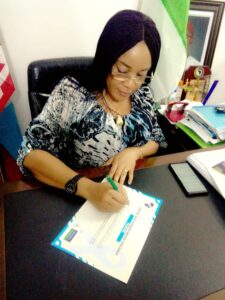
Mrs. Onwudiwe reiterated the state government’s stand on such obnoxious practices: “The Violence Against Persons Prohibition is regarded as a state law that takes care of all manner of barbaric harmful widowhood practices. The law stands to protect the widows; the law stands to give widows voice.
“Any widow that reports to the state, the state takes care of the problem from the beginning to the end, the judiciary, the health issue, everything about the case, the woman will not spend a dime,” she continued.
The legislator therefore called on widows to speak up, by reporting any such inhumane treatment to the state ministry of women affairs and vulnerable people. “No woman should shy away from her problem, when you report your problem, you will be helped. Go to the ministry, they will direct you to the appropriate quarters.”
She said the ministry has so far made some interventions and have succeeded in restoring widows’ inheritance, empowered some where necessary, referred the cases for prosecution and are following up on the court cases.
Mrs Onwudiwe noted that the fight to end harmful widowhood practices in Imo State is not a fight for the government alone. She maintained that all agents of socialisation must, in fact, be effectively engaged to secure a society free from discrimination against widows.
“In short, all hands must be on deck for us to reduce barbaric widowhood practices in Imo State, so that those perpetrators will know there’s no hiding place.”
This Report is part of activities by the Ikenga Media & Cultural Awareness Initiative (IMCAI) under the Collaborative Media Engagement for Development Inclusivity and Accountability Project, a multi-level intervention for media independence and government accountability, managed by the Wole Soyinka Centre for Investigative Journalism (WSCIJ) and supported by MacArthur Foundation.

